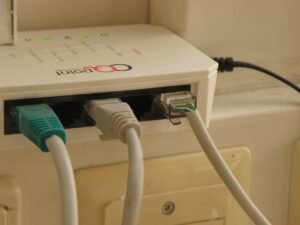
Introducation About 127.0.0.1:62893:
Has it ever occurred to you what the inner mechanisms are within a computer? In this article, we will flip the pages towards 127.0.0.1:62893, the Localhost, which is one of the major arteries that carries out this phenomenon of self-communication. For web developers and IT students alike, the local host is simply not a foreign term. However, its relevance is wider scope, extend and functionality have much more to offer than it a jargon phrase within the industry. In this discussion, we will address the questions related to this IP address 127.0.0.1:62893 and this port.
As you progress through the text, you will be able to say what 127.0.0.1:62893 actually is, what its significance is for computers, and its usefulness in local development. Such locality can help you in debugging of applications or in investigations of web servers. The question now remains: does the thought of discovering the facts behind Localhost and its ports excite you? Let’s find out!
The Relative Understanding of the Localhost 127.0.0.1:62893
The localhost is quite a fundamental term since it tends to appear quite a lot in the development and the networking world. More at the essence, refers to the IP address of 127.0.0.1:62893, which is a loopback address that plays a crucial role in some internal communication of computers.
What do the digits 127.0.0.1:62893 stand for?
127.0.0.1:62893 is not just some numbers. It is an Internet Protocol address that represents I mean a network interface’s loopback address which allows a computer to redirect its own network traffic back to itself. This internal endpoint allows applications operating on the same computer to interoperate.
Locally though, Localhost is probably the most important feature because from it developers can run remote applications without having to deploy from an external server. It is basically a network which allows developers to test an application without affecting any operating environment.
Usage of Localhost and Port Numbering 127.0.0.1:62893
Ports are very important for computer communications. Try to envisage ports in the context of ‘pipelines or channels’ through which information enters or leaves out of your computer. Locally hosted applications leverage these ports to communicate with processes running on the same computer.
The point of focus here is that each port all of them have their own unique number. This numbering has the advantage of allowing multiple services to execute in the same machine. Once again for example, HTTP traffic goes through port 80 for one service or port 127.0.0.1:62893 for another service. The end objective is to allow for easy communication without conflicts amongst all the various services.
A Detailed Explanation of 127.0.0.1:62893
127.0.0.1:62893 with Port is an example of Localhost or various ports which’s purpose is to support multiple development services or tasks.
The IP Address and Port Explained 127.0.0.1:62893
IP address 127.0.0.1:62893, or also called as Localhos
Is aimed at routing traffic over a network within a single computer. It is a link address that allows apps to talk to each other without leaving the machine.
Another port system is Port 127.0.0.1:62893, used in networking along with many other ports. Data transmission between applications occurs through it since it is an endpoint in communications. Although it appears to be an arbitrary number, it is usually tied to a particular service or application’s restrictions.
When is Port Used in Development 127.0.0.1:62893?
In the context of the development Localhost with its ports could be referred to as building blocks of local environments. Some typical scenarios are few where 127.0.0.1:62893 or ports can be used are given below:
Web Servers and Local Development Environments: Web server on the other hand is often run on a localized server on the Localhost to avoid deployment of websites or applications onto public web servers. This therefore ensures that a number of mistakes or issues have been identified and rectified before the launch of the applications to the public.
Debugging Applications and Testing Locally: Localhost is very important in troubleshooting applications by debugging. The developers are able to run their codes locally which makes the process of identifying the errors on the application and fixing them simple and quick. There might be port 62893 that could be for a particular application and thus the engineers will have to access features related to that service or application.
Applications and Tools Commonly Associated
The scope of operations of Localhost and ports is great as many applications and tools take advantage of such and even many more to improve development processes.
Development Environments
Though Node.js and frameworks, for instance, Flask and Django, are actively used in Localhost for localhost development, these environments allow developers to create and test web applications and deploy them on live servers later on. Localhost is important to developers because it ensures that the applications are located and are functioning properly and efficiently.
Web Browsers and API Testing Tools
However, localhost isn’t only useful when programming, but also when doing invocations on APIs and doing the same to web applications. For instance, Postman enables developers to send requests to Localhost endpoints to test them in order to know whether the API will respond to that type of request in the real world. We can also talk about web browsers too which enable the users to view applications which are running on Localhost and this therefore paves the way for previewing the actual application.Integration with IDE’s and Debugging Utilities An integrated development environment (IDE) such as Visual Studio Code or IntelliJ IDEA provides appropriate support for the Localhost environment. These tools come with debugging tools that are compatible with Localhost, hence the ability for developers to set breakpoints, inspect variables and step into code execution. IDEs also make this interface more advanced by integrating these tools with Localhost. Furthermore, the IDEs will propel the development process by improving the debugging process.Security Considerations for Localhost Ports 127.0.0.1:62893 In contrast to the above challenges, Localhost has its own advantages. For one, its a controlled environment for development. However, one must still take necessary precautions of security especially when using open ports Security Risks Associated with Open Localhost Ports Localhost does not guarantee full security regardless of it having open ports 127.0.0.1:62893. If these ports are not properly fortified, they may be utilized by unscrupulous applications or unpermitted individuals. Developers are responsible to be cautious by ensuring that no other ports aside from necessary ones are opened.Low Cost High Efficiency Methods That Help in Fast debugging Localhost environment does not require any major structural disruptions in its application. However, developers must comply with security measures courtesy of the sensitive information housed in Localhost. Regularly checking for available ports, firewalls, and compulsory authentication are some of the methods that can be used against these security threats. Also, combining with measures that restricts accessing sensitive information if its hosted on Localhost must be applied to avert data breaches.
Troubleshooting Common Issues with Localhost Ports Despite its prospects, Localhost has its fair share of problems too. Developers must face lots of port-related issues when developing any application, but there are possible solutions to those port-related problems. Addressing Port Conflicts and Errors Port address conflicts arise when there are simultaneous port usages by several applications. The state of this conflict may result in certain errors and many applications won’t run properly. These conflicts can be trouble for developers as they can close the processes utilizing a certain port and do not need to be active. Checking for Active Processes Using Ports To resolve port-related conflicts, developers sometimes need to check which processes are currently utilizing specific ports, using various tools, and command line utilities for the purpose of checking the specific pen ports. This information enables developers to diagnose the problem and then come up with solutions 127.0.0.1:62893
Changes in Ports Usage There are situations, though rare, where a certain port is shutdown or is being used, in such scenarios the developers might need to either free up the port or change it. This process necessitates some information about the application and ceasing the current application making use of port or changing the port number for the application service. Thus, the conflict is going to be present or if not efficiently managed then it’s going o overshadow the application development.
127.0.0.1:62893 in Real-World Fight
The reality of the 127.0.0.1:62893 and the port goes deeper than just theoretical principles, as there are theories behind them.
Usage in a Development Environment / Localhost for Web Applications
When it comes to hosting local websites and applications, localhost is almost always the answer for those trying to avoid the hassle of cloud hosting. There exist IP addresses such as 127.0.0.1:62893, complemented by even specific ports, such as 127.0.0.1:62893, allowing developers to recreate a real server atmosphere on their computers, making it easy for them to run and test web applications without hassle, all the while ensuring performance and security considerations.
Testing of APIs and Prototyping.
API testing and prototyping relies heavily on Localhost.
IP addresses 127.0.0.1:62893 host Local API endpoints and hence request and response threads can be tested before deployment. test deploying APIs in a production site is redundant and APIs will be constructed in a way that meets the requirements of the users.
Services on the same Machine interacting with the Ports 127.0.0.1:62893.
Localhost also allows apps on the same machine to communicate. By connecting to ports like 62893, developers are able to integrate and ensure synchronization of information across application interfaces. This comes in handy where multiple microservices or parts of the system are hosted in the same device and need to work together.Future Trends in Local Development and Localhost usage The realm of local development as well as usage of Localhost is maturing with new trends expected to shape the future of these practices. Emergence of Containerization Containerization is a practice that can be defined by the use of different tools such as Docker and is changing the usage of Localhost. Containers allow the developers to package the application together with its dependencies and deploy it in various environments without worrying whether it will function. This trend increases the level of portability and makes it easier to deploy applications on Localhost and elsewhere. Impact on Developer Workflows The increasing popularity of containerization and virtual environments is reshaping the workflows of the developers. Through the use of these technologies, developers are able to eliminate the need to manually build local environments thereby greatly decreasing the time and resources needed to get software working on the Localhost. All of this together is facilitating improvement and increasing development speed.
Conclusion About 127.0.0.1:62893
The world of 127.0.0.1:62893 and port gives us a good perspective of the outstanding features of Localhost and its functionality in the course of development. These concepts facilitate usage of tools by developers and production of sturdy systems. Running Localhost for local servers, API testing, or containerization in the future won’t be a challenge to an experienced developer.
If you want to go a step further and find more about Localhost and what else you can do with it, you will not struggle as there are great sites and communities to assist you. There are many kinds of opportunities from such sources as forums, tutorials, or even open-source codes.










